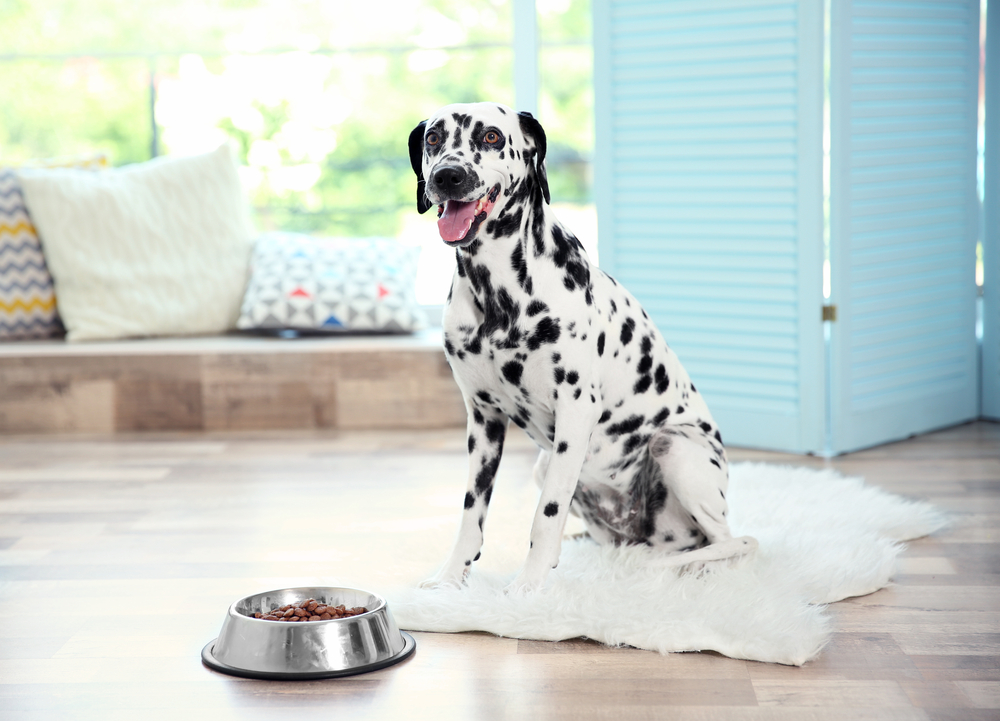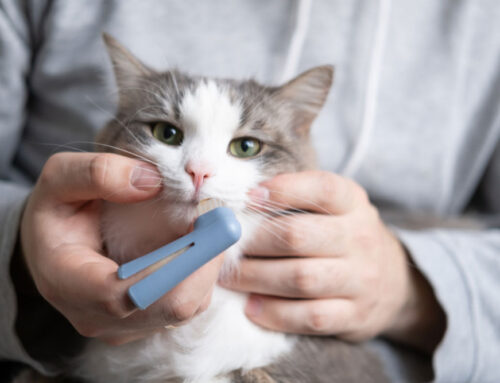Constant itching can make your pet miserable, but they cannot be treated appropriately until the cause is identified. Uncontrolled itching is a common complaint in pets seen by veterinarians, with every case different and requiring an individualized treatment strategy. Our Palm City Animal Medical Center team frequently sees itchy pets in our practice, and we offer details about three itchy pet cases with three different outcomes.
Case #1: Ginger, a 2-year-old female domestic shorthair cat
Presenting concern: Itchiness affecting her head and neck
Ginger’s owner noted that her cat started itching about a week and a half before she presented at our practice. She explained that Ginger lives solely indoors, but she does have contact with the neighbor’s dogs when they visit. Case details include:
- Workup — Ginger’s vitals were normal on physical examination. She had hair loss and red skin lesions on her head, neck, and back, and she scratched frequently in the exam room. When we examined Ginger’s coat and skin, we did not observe any parasites, but we did see small, black granules that we identified as flea dirt. Ginger’s blood work revealed no abnormalities.
- Diagnosis — Because flea dirt was present on Ginger’s coat, our team suspected flea allergy dermatitis (FAD). Many pets are allergic to the flea’s saliva, and only one flea can cause a significant itchy reaction. The majority of affected pets scratch, bite, and lick excessively, grooming away the fleas, so the parasites are usually not evident on the pet.
- Treatment — We recommended year-round flea prevention for Ginger, and explained that the neighbor’s dogs would also need treatment to prevent Ginger being exposed to subsequent parasites. We also recommended treating Ginger’s home environment for fleas. This involved:
- Washing or discarding all bedding
- Vacuuming floors and upholstery and discarding the vacuum bag, since flea eggs can hatch in the bag
- Treating all surfaces with an appropriate insecticide
- Repeating the process until all fleas at every life stage are eradicated
- Outcome —Ginger’s condition improved gradually, and her itching and skin lesions resolved completely in about two weeks. She and her canine friends remain on year-round flea prevention.
Case #2: Sambo, a 1-year-old male boxer
Presenting concern: Itchiness affecting his face, abdomen, and feet
Sambo’s owner said his dog’s itchiness had started about one month earlier, and had gradually intensified until he was constantly scratching, biting, licking, and rubbing. Sambo receives year-round flea and tick prevention. Sambo’s owner noted that he was also shaking his head and scratching at his right ear frequently. Case details include:
- Workup — Sambo’s vitals were normal, but he had hair loss and skin redness and excoriations on his face and abdomen. In addition, our team noted that he chewed on his front feet throughout the physical examination, and that his right ear had a smelly discharge and was painful to the touch. Sambo’s blood work revealed no abnormalities. We lavaged Sambo’s ear, and sent him home with medications to treat the ear infection, as well as a low dose of steroids to help alleviate his itching. His ear infection resolved, and his itching improved marginally.
- Diagnosis — Because of Sambo’s age, lesion distribution, and response to steroids, our team suspected atopy. Some pets have a defective skin barrier that makes them susceptible to environmental allergens, such as pollen, dust mites, mold spores, and grasses. We tested Sambo for allergies to determine what environmental allergens were causing his reaction.
- Treatment — Treatment for atopy requires a multi-modal approach to improve effectiveness, involving:
- Flea control — Year-round flea control is important, because fleas can exacerbate atopic flares.
- Bathing — Bathing removes allergens from the skin and helps soothe inflamed skin.
- Steroids, Apoquel, or Cytopoint medication — These medications help reduce skin inflammation and alleviate itchiness.
- Omega-3 fatty acids — These supplements reduce inflammation and improve skin barrier function.
- Hyposensitization therapy (when deemed appropriate by your veterinarian) — The information from Sambo’s allergy testing was used to create allergy shots to desensitize him to the problematic allergens.
- Outcome — After six months on the hyposensitization treatment, Sambo’s itchiness is markedly better. His owner now bathes him weekly, provides year-round flea control, keeps him on omega-3 fatty acids, and uses anti-itch medications occasionally for acute flares.
Case #3: Gretchen, a 6-year-old Dalmatian

Presenting concern: Itchiness affecting her face, feet, and under her tail
Gretchen’s owner reported that she had been itchy for several weeks and her itching was worsening, and that Gretchen had occasional bouts of vomiting and diarrhea the previous week. Gretchen receives year-round flea prevention. Case details include:
- Workup — Gretchen’s vitals were normal, but we noted hair loss and skin lesions on her face and under her tail, and she constantly licked her feet. Gretchen’s blood work revealed no abnormalities. We sent Gretchen home with a calming shampoo and a low-dose steroid regimen, and instructed her owner to closely monitor her for vomiting and diarrhea. Over the next week, Grechen’s itchiness gradually worsened, and her occasional bouts of gastrointestinal upset continued.
- Diagnosis — Because of Gretchen’s age, lesion distribution, and lack of response to steroids, our team suspected a food allergy, so we recommended that Gretchen’s owner implement a hypoallergenic diet trial. Gretchen was fed a hydrolyzed diet— a diet in which the protein is broken down to small components that the body doesn’t recognize—for eight weeks. During this time, she was not fed any treats, medicated chews, or table scraps. Gretchen’s itchiness started to improve at the six week mark and was almost completely resolved by eight weeks. Her GI signs also resolved. Gretchen’s owner could have reintroduced the ingredients from her previous food to determine the one that triggered the reaction, but her owner didn’t want her itchiness to return, and decided to keep her on the hydrolyzed diet.
- Treatment — We advised Gretchen’s owner to feed only the hydrolyzed diet and monitor her closely for any skin or GI signs. We also recommended keeping her on year-round flea prevention to ensure the parasites don’t contribute to the problem.
- Outcome — Gretchen is doing well on the hydrolyzed diet, plus omega-3 fatty acids to help support her skin health.
If itchiness is making your pet miserable, contact our Palm City Animal Medical Center team, so we can diagnose the cause, devise an effective treatment strategy, and give your miserable pet some relief. Each case is different, and we will need to evaluate your pet to determine the best treatment, which will yield the best results.








Leave A Comment